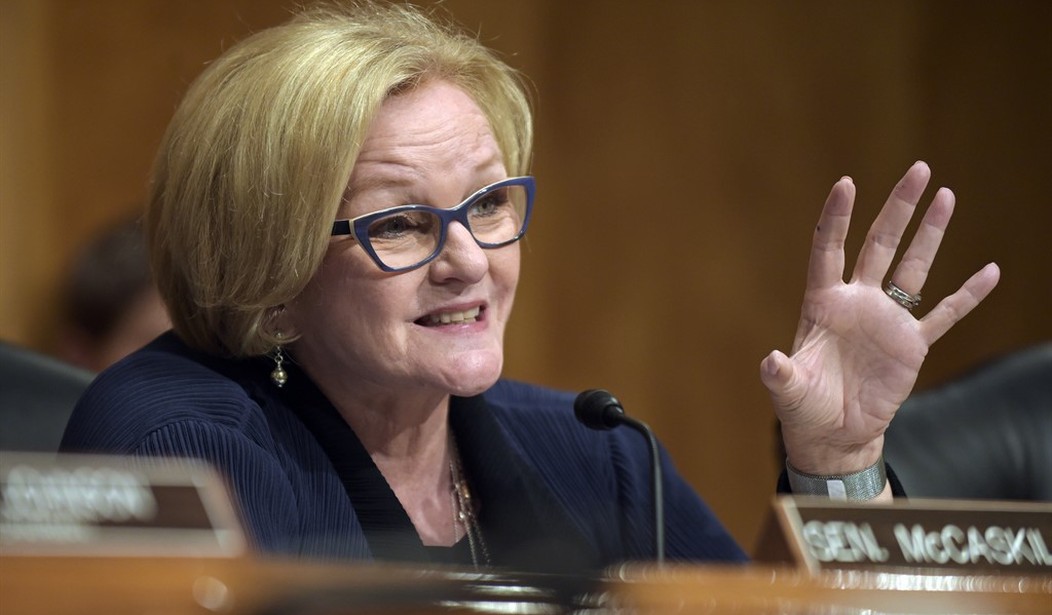As both parties come to grips with their failures to revamp the health-insurance industry — Republicans on the failure to replace ObamaCare, Democrats on ObamaCare itself — some hope that a bipartisan compromise can resolve the issue. Both sides remain far apart, and progressive Democrats are continuing to press for single-payer, which is a no-go for Republicans. (So far, anyway.) However, one idea may be emerging as a compromise between Medicare-for-all and the elimination of all mandates — a Medicare expansion that captures the high-utilization demographic of Americans between 55 and 65 years of age, the traditional threshold of Medicare eligibility.
As I wrote last night, both Michael Bennet and Claire McCaskill have broached the idea in recent town hall meetings with voters. In speaking with constituents in the red county of Greeley, Sen. Bennet eschewed single-payer, but wants to expand Medicare as a buy-in program. “I think we should have a discussion about how to expand Medicare,” Bennet said, “so that more people can be part of it or maybe be able to buy it and how to do the same with Medicaid.” That echoed his colleague from Missouri, who suggested that Congress “put what is a quasi-public option on the exchanges. People between the ages of 55 and 65 are the people that need health insurance the most,” reviving the idea of a buy-in public option for the pre-Medicare population.
That may sound like an attractive option, especially if coupled with an end to the individual mandates and one-size-fits-all health plans for younger consumers, as Republicans want. However, it’s a bad idea for a number of reasons, one of which is the results from the entitlement-program expansion included in ObamaCare, as I argue in my column at The Fiscal Times today:
Cost issues alone will probably keep the Medicare-for-all proposal from being a litmus test. However, lawmakers should also consider another unintended consequence of expanding an entitlement program to fit a political need, especially in how it impacts those the program intended to benefit in the first place.
Medicare began as a means to give retirees and the disabled a backstop for basic medical costs. Medicaid followed suit by offering basic insurance coverage to the poor. When Democrats decided to revamp the individual insurance markets in 2010 to reduce the number of uninsured Americans, they relied on an individual mandate to buy insurance and an expansion of Medicaid for those between poverty and the capability to pay for coverage. Millions signed up for the Medicaid expansion in states that chose to participate.
What impact did that have on the poor who needed core Medicaid? It shifted allocations of resources dramatically to those who earned more, as Charles Blahous noted two months ago. Per-person costs ran higher in the expansion group than in the core group, and the Center for Medicare and Medicaid Services now project that they will rise faster, too. “In other words,” Blahous concluded, “expansion has made Medicaid spending more poorly targeted. We’re already spending a far greater share than expected on Medicaid’s relatively less needy participants, and this poor targeting is expected to grow worse.”
That has another impact as well. The higher costs come from a greater utilization rate for services at Medicaid providers. However, the number of providers in the Medicaid network has not expanded to meet that demand, and in fact fell after the implementation of the expansion. Fewer providers serviced higher demand, which means that the poorer Americans that Medicaid traditionally covered have found it harder to access care, as the per-person costs for each group suggest.
There is an even more pressing reason to oppose such proposals. A Medicare expansion will be a camel’s nose inside the single-payer tent, especially if it turns out as costly as the Medicaid expansion. The argument will then become that the expansion doesn’t work because of its high utilization rates, so we need to shove everyone else in the program for the cost savings to occur. By the time this back door to the Medicare-for-all system promoted by Bernie Sanders fails to contain costs and creates the same kinds of issues that plague all single-payer systems, it will have been too late.









Join the conversation as a VIP Member